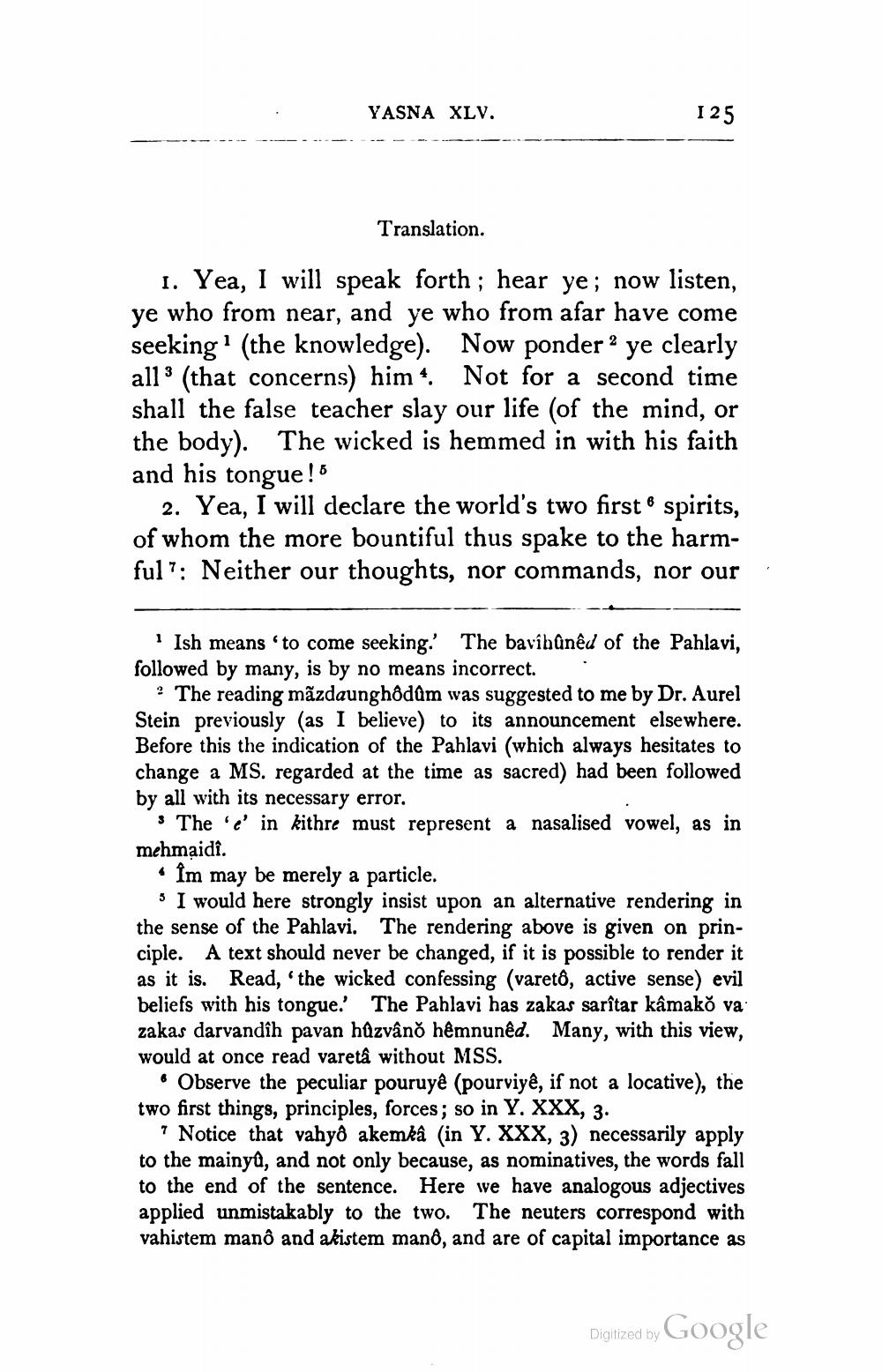________________
YASNA XLV.
125
Translation.
1. Yea, I will speak forth; hear ye; now listen, ye who from near, and ye who from afar have come seeking ? (the knowledge). Now ponder? ye clearly all' (that concerns) him 4. Not for a second time shall the false teacher slay our life (of the mind, or the body). The wicked is hemmed in with his faith and his tongue ! 6
2. Yea, I will declare the world's two first o spirits, of whom the more bountiful thus spake to the harmful?: Neither our thoughts, nor commands, nor our
Ish means to come seeking. The bavíbûnêd of the Pahlavi, followed by many, is by no means incorrect
? The reading mazdaunghôdùm was suggested to me by Dr. Aurel Stein previously (as I believe) to its announcement elsewhere. Before this the indication of the Pahlavi (which always hesitates to change a MS. regarded at the time as sacred) had been followed by all with its necessary error.
The e' in kithre must represent a nasalised vowel, as in mehmaidi.
• Îm may be merely a particle.
3 I would here strongly insist upon an alternative rendering in the sense of the Pahlavi. The rendering above is given on principle. A text should never be changed, if it is possible to render it as it is. Read, 'the wicked confessing (varetô, active sense) evil beliefs with his tongue.' The Pahlavi has zakas sarîtar kâmako va zakas darvandîh pavan hûzvânð hêmnuned. Many, with this view, would at once read vareta without MSS.
• Observe the peculiar pouruyê (pourviyê, if not a locative), the two first things, principles, forces; so in Y. XXX, 3.
Notice that vahyð akemkâ (in Y. XXX, 3) necessarily apply to the mainya, and not only because, as nominatives, the words fall to the end of the sentence. Here we have analogous adjectives applied unmistakably to the two. The neuters correspond with vahistem manô and akistem mand, and are of capital importance as
Digitized by
Digitized by Google




